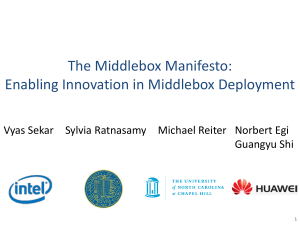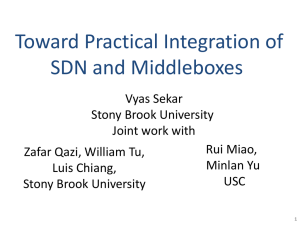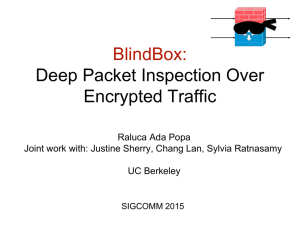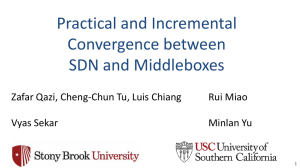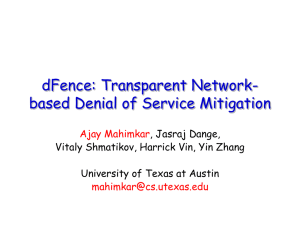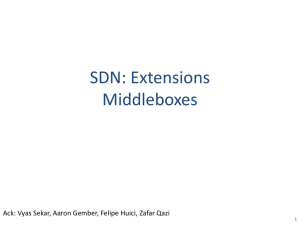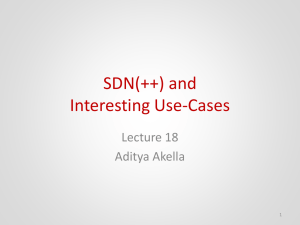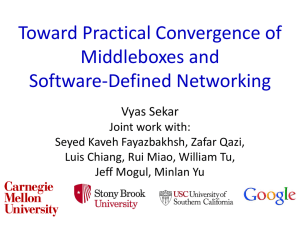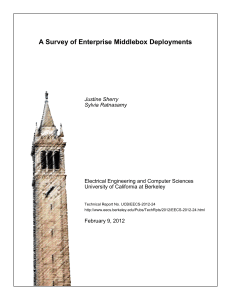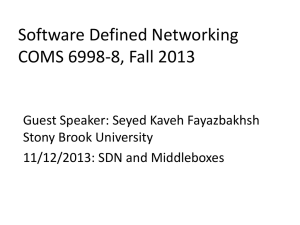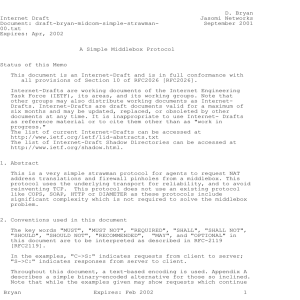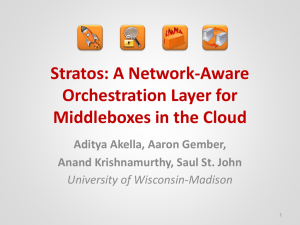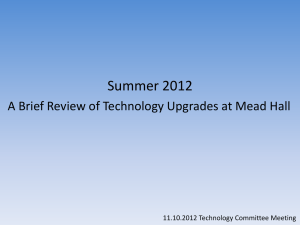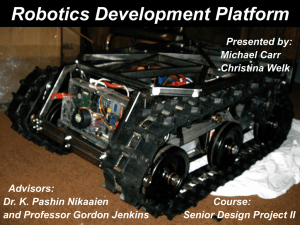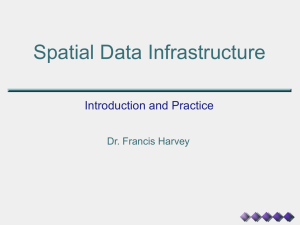Slides - University of Wisconsin
advertisement
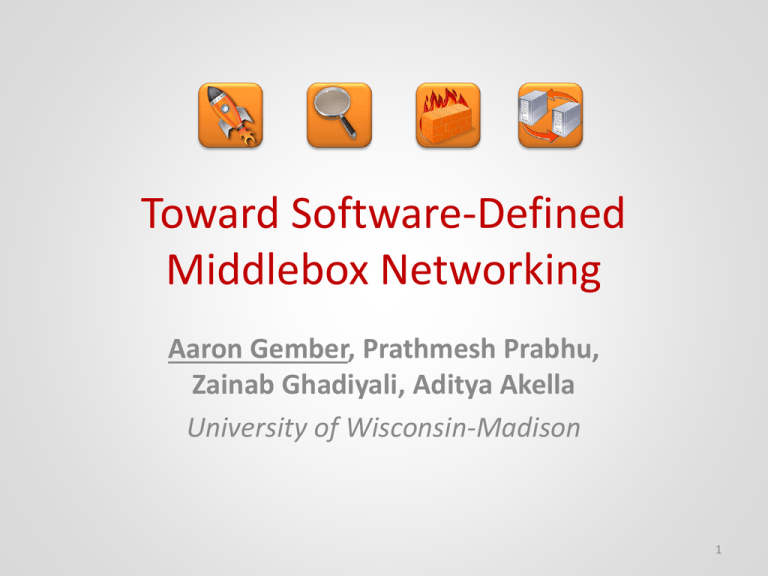
Toward Software-Defined Middlebox Networking Aaron Gember, Prathmesh Prabhu, Zainab Ghadiyali, Aditya Akella University of Wisconsin-Madison 1 Why Middleboxes? Application ??? SDN Presentation Session Transport Enterprises heavily rely on middleboxes Network Data Link Physical [Sherry et al., SIGCOMM 2012] 2 Middlebox Deployment Models • Arbitrary middlebox placement • New forms of middlebox deployment (VMs, ETTM [NSDI 2011], CoMB [NSDI 2012]) 3 Live Data Center Migration • Move between software-defined data centers Data Center A Data Center B • Existing VM and network migration methods – Unsuitable for changing underlying substrate Programmatic control over middlebox state 4 Middlebox Scaling • Add or remove middlebox VMs based on load • Clone VM (logic, policy, and internal state) – Unsuitable for scaling down or some scaling up Fine-grained control 5 Our Contributions • Classify middlebox state, and discuss what should be controlled • Abstractions and interfaces – Representing state – Manipulating where state resides – Announcing state-related events • Control logic design sketches 6 Software-Defined Middlebox Networking Today SDN-like Middleboxes IPS App App Controller Middlebox Middlebox 7 Key Issues 1. How is the logic divided? 2. Where is state manipulated? 3. What interfaces are exposed? Middlebox App App Controller Middlebox 8 Middlebox State • Configuration input + detailed internal records Src: HostA Server: B Server: B CPU: 50% Proto: TCP Port: 22 State: ESTAB Seq #: 3423 Hash: 34225 Content: ABCDE Balance Method: Round Robin Cache size: 100 Significant state diversity 9 Classification of State Action Src: HostA Server: B Proto: TCP Port: 22 Supporting Server: B CPU: 50% State: ESTAB Seq #: 3423 Hash: 34225 Content: ABCDE Internal & dynamic Tuning Balance Method: Round Robin Only affects performance, not correctness Cache size: 100 Many forms 10 How to Represent State? Per flow Src: HostA 1010110 Server: B Server: B 1000101 CPU: 50% Proto: TCP 1111000 Port: 22 State: ESTAB 1101010 Seq #: 3423 Policy Language Hash: 34225 0101001 Content: ABCDE Significant diversity May be shared Unknown structure Sharedmiddlebox operations Commonality among 11 State Representation Key Field1 = Value1 … FieldN = ValueN Action Offset1 → Const1 … OffsetN → ConstN Supporting Binary Blob • Key: •protocol header for field/value Only suitable per-flowpairs stateidentify traffic• subsets to vendor which state applies Not fully independent • Action: transformation function to change parts of packet to new constants • Supporting: binary blob 12 How to Manipulate State? • Today: only control some state – Constrains flexibility and sophistication • Manipulate all state at controller – Removes too much functionality from middleboxes Controller Middlebox 13 State Manipulation Determine where state resides Controller IPS 1 IPS 2 Create and update state • Control over state placement 1. Broad operations interface 2. Expose state-related events 14 Operations Interface get ( Filter SrcIP = 10.10.54.41 , ) Key SrcIP = 10.10.0.0/16 DPort = 22 Key SrcIP = 10.10.54.41 DstIP = 10.20.1.23 SPort = 12983 DPort = 22 Action * Supporting State = ESTAB Action • Need atomic blocks add ( Key , operations ) DstIP = 10.20.1.0/24 DROP of • Potential for invalid manipulations of state remove( Filter … , Source Destination Proto * 10.20.1.0/24 TCP Other Action * DROP ) 15 Events Interface Controller Firewall • Triggers – Created/updated state – Require state to complete operation Contents Balance visibility• and overhead – Key – Copy of packet? – Copy of new state? 16 Conclusion • Need fine-grained, centralized control over middlebox state to support rich scenarios • Challenges: state diversity, unknown semantics Key Field1 = Value1 … Action Offset1 → Const1 … get/add/remove ( … , Supporting Binary Blob ) 17 Open Questions • • • • • • Encoding supporting state/other action state? Preventing invalid state manipulations? Exposing events with sufficient detail? Maintaining operation during state changes? Designing a variety of control logics? Providing middlebox fault tolerance? 18 Related Work • • • • • • Simple Middlebox COntrol protocol [RFC 4540] Modeling middleboxes [IEEE Network 2008] Stratos – middleboxes in clouds [UW-Madison TR] ETTM – middleboxes in hypervisors [NSDI 2011] COnsolidated MiddleBoxes [NSDI 2012] Efficiently migrating virtual middleboxes [SIGCOMM 2012 Poster] • LIve Migration of Entire network [HotNets 2012] 19
